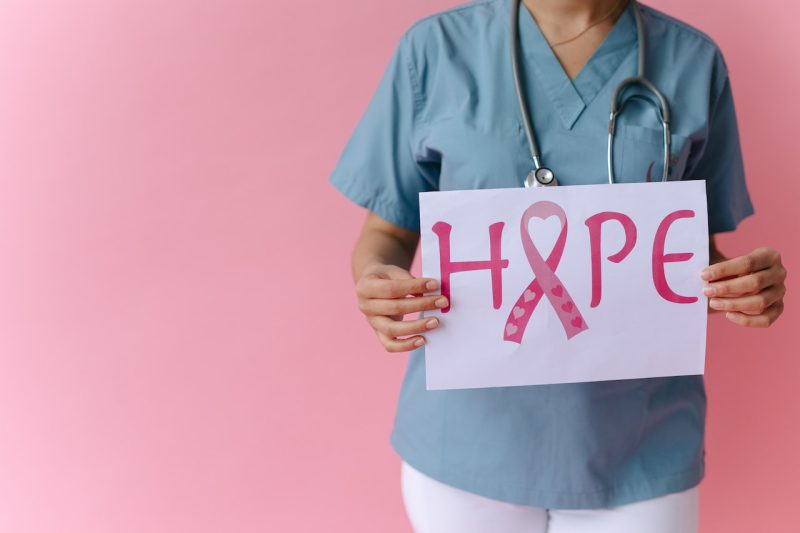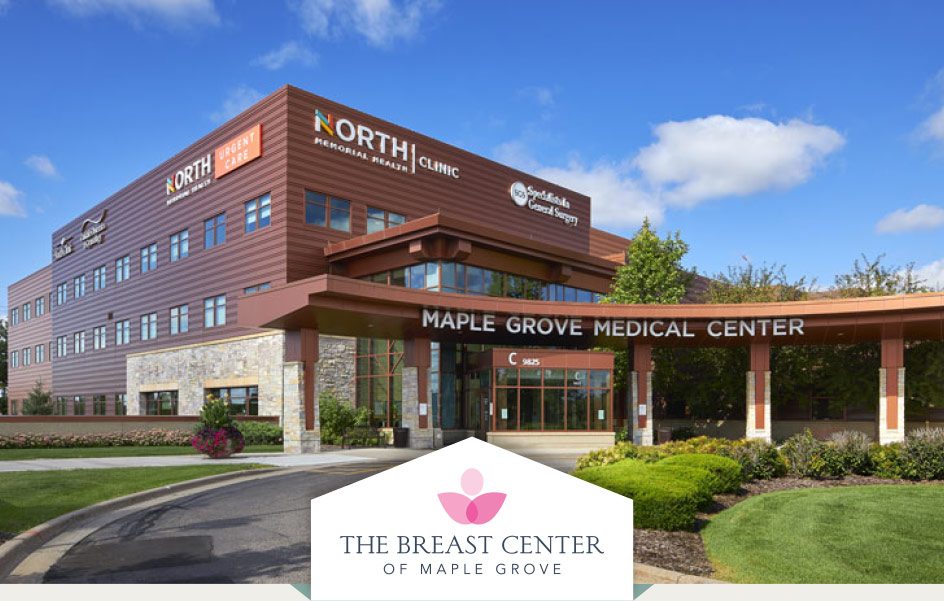Breast cancer develops due to abnormal growth of cells in the breast tissue. Cells in the body are in a constant process of growth, division, and death, and cancer occurs in any body part where cells grow and divide rapidly but do not die.
While the exact causes of this abnormal growth are not fully understood, medical experts have identified certain risk factors that may contribute to breast cancer, including:
- Age
- Family history
- Previous breast cancer diagnosis
- Exposure to radiation
- Certain genetic mutations
This article will discuss everything you need about the basics of breast cancer, including its causes, symptoms, diagnosis, and treatment options.
Before we dive in, however, let’s explore a few critical terms you’ll need to be aware of:
- Benign – a non-cancerous tumor
- Malignant – a cancerous tumor
- Lymph Nodes – small clumps of immune cells that work as filters for harmful substances in the body, including cancer cells
- Metastasize – the spread of cancer to other parts of the body, usually through the lymph nodes
Breast Cancer Symptoms
Some women with breast cancer may have no symptoms, while others will experience certain breast changes.
Possible breast cancer symptoms may include:
- A lump or mass, which may or may not cause pain, in the breast or the surrounding tissues
- Swelling, warmth, or redness of any part of the breast
- Change in the size or shape of the breast
- Itchy area or rash on the nipple
- Dimpling or puckering of the breast skin
- Inverted nipple
- Nipple discharge
It’s essential to report any breast changes to your healthcare team to decide if testing may be appropriate.
Additionally, because you may not experience any symptoms, you must schedule annual mammograms to help detect all abnormalities early—especially the ones you cannot feel or see.
Breast Cancer Diagnosis
Breast cancer is diagnosed through a combination of medical imaging exams and procedures.
A breast abnormality is often detected on a screening mammogram, although some women may notice a lump during a breast self-exam. Suppose a radiologist detects an abnormality during your regular mammogram. In that case, you will receive a call back for a second screening, also known as a diagnostic mammogram or a biopsy, to provide a definitive diagnosis.
Types of Breast Cancer
Let’s briefly review the different types of breast cancers and how they develop.
- Ductal carcinoma in situ or DCIS: DCIS is a form of breast cancer that is detected at an early stage. It only affects the cells inside the milk ducts, the small tubes that transport milk to the nipple. The cancer cells have not yet spread beyond the ducts to the surrounding breast tissue.
- Invasive breast cancer: When breast cancer grows beyond its original location, such as a milk duct or gland, and invades the surrounding breast tissue, it’s called invasive breast cancer. Invasive breast cancer can also spread to other parts of the body. The two common types of invasive breast cancer, include:
- Invasive ductal carcinoma (IDC), which starts in a milk duct and grows into nearby tissue
- Invasive lobular carcinoma (ILC), which begins in milk glands and spreads to nearby tissue.
- Inflammatory breast cancer (IBC): Inflammatory breast cancer (IBC) occurs when cancer cells obstruct the lymph vessels in the breast skin, resulting in redness and warmth. Unlike other types of breast cancer, IBC does not typically present as a lump. Instead, your skin may also appear thick and pitted, resembling an orange peel. Additionally, the breast may become larger, harder, tender, or itchy.
- Triple-negative breast cancer (TNBC): This type of invasive breast cancer does not respond to certain treatments. The cancer cells lack three specific proteins, namely estrogen and progesterone receptors that help cells respond to hormones, and HER2, which is commonly overproduced in other breast cancer types.
Breast Cancer Treatment
After a breast cancer diagnosis, your doctor will customize a treatment plan based on your unique condition, symptoms, and health. These may include:
- Surgery: Breast cancer patients may undergo a lumpectomy, which removes the tumor, or a mastectomy, which removes the entire breast.
- Radiation Therapy: Radiation therapy uses targeted X-rays to kill cancer cells in the breast tissue. You may receive this procedure following surgery.
- Chemotherapy: Chemotherapy medication travels through the bloodstream to kill cancer cells that may have traveled to other body parts.
- Hormone Therapy: For certain cancers that are hormone-receptive, hormone therapy works by blocking estrogen receptors in the breast or stopping the production of estrogen in the body.
FAQs about Breast Cancer
If you or someone you care about has received a breast cancer diagnosis, understanding what to do next and how you arrived at this point can be overwhelming.
To alleviate your concerns and provide answers to your most pressing inquiries, we have created a list of Q&As that will equip you with the knowledge and confidence to move forward.
Why is family history a risk factor?
There are two main reasons why family history increases your risk of developing breast cancer:
- Lifestyle
- Genetics
Lifestyle Risks: If multiple family members develop breast cancer, it can be due to a shared lifestyle. Unhealthy diets and lack of exercise increase your risk of developing cancer, so overweight family members share an increased possibility.
Alcoholism and smoking are other big risk factors that often share family habits.
Genetic Risks: Genetics can also make you more susceptible to developing cancer. Genes may go through alterations or mutations as they pass down through generations, and some of these gene mutations have been linked to breast cancer (ex. BRCA1 and BRCA2 genes).
Normally, these genes help prevent cancer by making the proteins that keep the body from growing abnormal cells. However, when altered, they stop doing their job and let the body create abnormal cells, allowing cancer to form.
Why is left breast cancer more common?
Breast cancer can occur in either breast; however, research has shown a higher incidence of left-sided breast cancer. Medical experts are still unable to come up with a definitive reason for why this anomaly occurs.
Researchers have proposed several possible explanations over time, including the left breast being larger, tumors being detected earlier in right-handed individuals, and more frequent breastfeeding from the right breast.
Despite this, both sides of the breast share the same genetic and environmental risk factors for developing breast cancer. However, there may be structural differences between the two sides, such as
- Variations in tissue structure
- Blood vessel supplies
- Lymphatic drainage
Having regular mammograms can ensure that both breasts are screened for abnormalities.
Can you have breast cancer in both breasts?
Breast cancer can start in one or both breasts. If it begins in both, it’s called bilateral breast cancer. However, developing in just one breast (unilateral) is more common.
While breast cancer can spread to the other breast, it’s very rare. It’s more likely for the cancer to spread to other important areas of the body, like the brain, lungs, or bones.
Does breast cancer cause depression?
Feeling sad, shocked, or angry are natural emotions accompanying a cancer diagnosis; therefore, finding an outlet to express yourself is important.
In addition to the shock of diagnosis, some cancer treatments may contribute to depression. Hormonal therapies, for example, can affect your disposition and bring about mood swings.
Chemotherapy can cause such uncomfortable side effects that you may find less enjoyment in daily activities, disrupt your sleeping patterns, or leave you exhausted and unable to function at a comfortable pace.
When you put all this together, it’s not surprising that depression can develop from breast cancer.
Here are signs to be aware of:
- Fatigue: This is the most often occurring symptom of depression. You may find yourself feeling drained and losing energy without a reason.
- Loss of Interest: Activities you usually enjoy require more excitement or pleasure. You may find yourself avoiding social interactions as you lose enthusiasm.
- Feeling Overwhelmed or Hopeless: Feeling like your problems are too big to fix, that you won’t make a difference, and aren’t worth being valued are often felt among people with depression.
- Changes in Sleeping Habits: You may find yourself sleeping all day or getting out of bed is hard. It may also be the opposite, that when you lie down, your mind can’t stop racing and can’t settle down.
- Thoughts of hurting yourself or suicide: Sometimes, someone with depression may have thoughts about harming themselves. If this happens, getting help and discussing these thoughts with your doctor or a therapist is crucial.
Does breast cancer come back?
If the same type of cancer returns after remission, it’s called recurrence. After your cancer treatment or surgery, your doctor will recommend a schedule for follow-up exams and imaging tests to screen for cancer recurrences.
Following through with these visits is critical, as it can help detect recurrences early. Communicating openly with your doctor and discussing any new or returning symptoms is also very important.
Signs of possible recurrence to be alert for:
- Return of cancer symptoms
- Unanticipated weight loss
- Bleeding easily
- Unexplained bruising or sores that do not heal
- New or odd pain that doesn’t go away
- Bloody stools or urine
- New lumps or swelling without reason
- Vomiting, diarrhea or loss of appetite
- Severe or constant headaches
Why Does Cancer Sometimes Come Back?
Cancer cells can remain dormant for any period, and a recurrence may be due to the initial treatment not being completely successful. This can happen if your surgery fails to remove all the cancer or other treatments (chemotherapy, radiation therapy, etc.) cannot eradicate all the cancer cells.
Sometimes this can happen if the cancer has moved to another location in your body before surgery or treatment or if the cancer cells become resistant to treatment.
How likely is recurrence?
Unfortunately, there is no way to tell how likely your cancer will return, and it can be upsetting when your doctor cannot tell you whether your cancer is gone for good. However, each day that passes after treatment lowers your risk of recurrence. Most cancers will return within the first two years of remission. If you are having difficulty coping, it may be helpful to talk to a friend or family member, therapist or join a support group to discuss your fears and feelings.
When should women begin annual mammograms?
All women (regardless of family history) should perform a monthly breast self-exam and regular clinical screening for breast cancer. Though if you have a family history of breast cancer, you will need screenings more often, possibly earlier in life.
Make sure you get a clinical breast exam every 6-12 months and a mammogram every year (likely starting between 30 and 40 years, depending on how closely related your diagnosed family member is).
Ready to Get Started?
At The Breast Center of Maple Grove, we’re here to make your mammogram as easy and comfortable as possible.
You can call 763-398-6370 today to schedule an appointment or fill out an online form. We are open Monday through Friday, from 7:00 am to 5:00 pm, and have extended hours of 7:00 am to 8:00 pm on Tuesdays so you can easily fit a visit into your busy schedule. Walk-ins are always welcome and you can expect your results within the same day!

